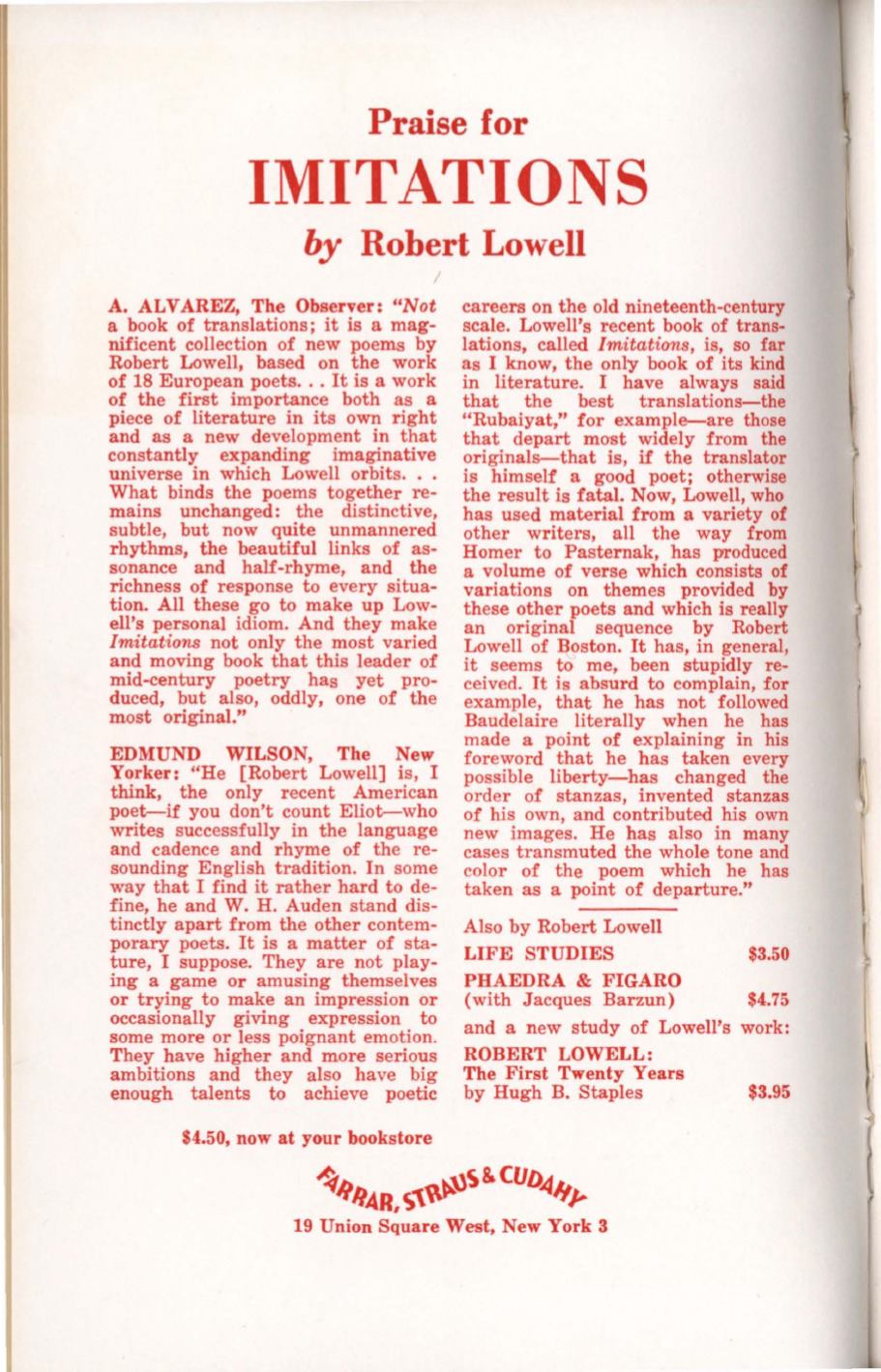
Praise for
IMITATIONS
by
Robert Lowell
/
A. ALVAREZ, The Observer:
"Not
a book of translations; it is a mag–
nificent collection of new poems by
Robert Lowell, based on the work
of 18 European poets...
It
is a work
of the first importance both as a
piece of literature in its own right
and as a new development in that
constantly expanding imaginative
universe in which Lowell orbits...
What binds the poems together re–
mains unchanged: the distinctive,
subtle, but now quite unmannered
rhythms, the beautiful links of as–
sonance and half-rhyme, and the
richness of response to every situa–
tion. All these go to make up Low–
ell's personal idiom. And they make
Imitations
not only the most varied
and moving book that this leader of
mid-century poetry has yet pro–
duced, but also, oddly, one of the
most originaL"
EDMUND WILSON, The New
Yorker: "He [Robert Lowell] is, I
think, the only recent American
poet-if you don't count Eliot-who
writes successfully in the language
and cadence and rhyme of the re–
sounding English tradition. In some
way that I find it rather hard to de–
fine, he and W. H. Auden stand dis–
tinctly apart from the other contem–
porary poets.
It
is a matter of sta–
ture, I suppose. They are not play–
ing a game or amusing themselves
or trying to make an impression or
occasionally giving expression to
some more or less poignant emotion.
They have higher and more serious
ambitions and they also have big
enough talents to achieve poetic
$4.50, now at your bookstore
careers on the old nineteenth-century
scale. Lowell's recent book of trans–
lations, called
Imitations,
is, so far
as I know, the only book of its kind
in literature. I have always said
that the best translations-the
"Rubaiyat," for example-are those
that depart most widely from the
originals-that is, if the translator
is himself a good poet; otherwise
the result is fatal. Now, Lowell, who
has used material from a variety of
other writers, all the way from
Homer to Pasternak, has produced
a volume of verse which consists of
variations on themes provided by
these other poets and which is really
an original sequence by Robert
Lowell of I!oston.
It
has, in general,
it seems to me, been stupidly re–
ceived.
It
is absurd to complain, for
example, that he has not followed
Baudelaire literally when he has
made a point of explaining in his
foreword that he has taken every
possible liberty-has changed the
order of stanzas, invented stanzas
of his own, and contributed his own
new images. He has also in many
cases transmuted the whole tone and
color of the poem which he has
taken as a point of departure."
Also by Robert Lowell
LIFE STUDIES
$3.50
PHAEDRA
&
FIGARO
(with Jacques Barzun)
$4.75
and a new study of Lowell's work:
ROBERT LOWELL:
The First Twenty Years
by Hugh
B.
Staples
$3.95
~-9I1AR,
S"\\\t-.\lS&
(U/)411J;
19 Union Square West, New York 3
~
I
,
I
I
l


